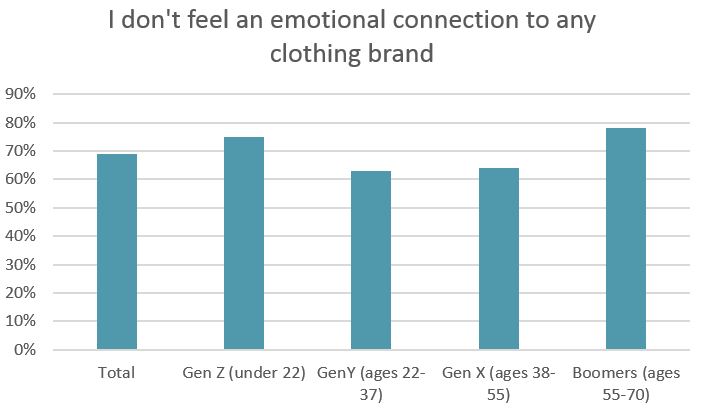Experiential marketing is described as a strategy that immerses customers within a product or deeply engages them, according to Salesforce, the customer relationship management (CRM firm). In short, they say, it “enables consumers to not just buy products or services from a brand, but to actually experience the brand.” With the shutdowns and social distancing stemming from the pandemic, brands and retailers can find an opportunity to connect with consumers by employing experiential marketing to tell their story.
“We believe that the future of retail is c-commerce, which is consumer commerce,” said Showfield’s Katie Hunt, co-founder and chief communications officer, in a panel discussion during the summer PSFK x Retail Innovation Week – Future of Retail Festival.
“Every direct-to-consumer company that has been successful has reimagined itself around the pain point for the consumer,” Hunt said. “Like Uber saying, ‘You don’t want to stand out in the rain to try and find the cab,’ we believe that retail is not dead, it’s just evolving. But it’s evolving to be reimagined by the consumer. And the consumer’s needs are so much greater than they’ve ever been historically, in terms of their expectation from an experience. And so for us, it’s about connectivity, community and content. It’s about really reimagining the store through them instead of through the retailer and the business.”
Alivia’s Jovana Mullins, co-founder and chief creative officer of the women’s apparel brand, found a way to meld fashion with special artwork. A print and embroidery designer for more than 10 years, she explained how her label evolved during Fashinnovation Worldwide Talks 2020, held during September’s New York Fashion Week.
“About two and a half years ago, I began volunteering at an organization in Chinatown, called the Center for All Abilities, for their art therapy program,” Mullins said. “The center caters to all different types of neurological disabilities and disorders — autism, Down syndrome, cerebral palsy. I saw this world of incredible talent and such meaningful artwork. For a lot of the students, art is a way to express their personalities, to have a sense of purpose and joy. And I, as a print designer, saw this artwork and thought, “Oh my gosh, this needs to be a dress. This needs to be on a scarf.” And I thought, what if I took this work I’ve been doing to help other brands and I married it with my passion for helping individuals with disabilities? We can promote inclusivity and awareness. They may not communicate the same way but they have incredible talents and abilities, and they need a platform to express themselves, and have an opportunity to show their gifts.”
Similarly, the pandemic has inspired consumers to think more about their values, and that could translate into the types of apparel they buy. The majority of consumers (72 percent) say they tend to shop at apparel brands and retailers that share their personal views or lifestyles, according to the Cotton Incorporated fall Lifestyle MonitorTM Survey.
It’s important for brands and retailers to make a connection like this because almost 1 in 2 shoppers (47 percent) say they’re less loyal to clothing brands than they were just a couple of years ago, according to the MonitorTM. Further, nearly 7 in 10 (69 percent) consumers say they don’t feel an emotional connection to any clothing brand.

While consumers may not feel particularly loyal toward brands or stores, most do have a preference for the fiber they wear. About 85 percent say cotton is their favorite fiber to wear, according to the MonitorTM.
A number of retailers and apparel brands have recognized that connection consumers have to cotton, and have collaborated with Cotton Incorporated on dynamic shopping events. Last year, a three-day pop-up shop at the Montauk Beach House in Montauk, NY, paired Cotton Incorporated with Amazon. The event showcased the natural fiber’s versatility and ability to bridge lifestyles. The event brought the Cotton Style House Collection to life, expanding Amazon’s vast apparel offerings. Its success has led to a continuation of “The Cotton Style House” on Amazon.com for this year’s holiday season.
Another shopping event is currently taking place between Cotton Incorporated and Saks Fifth Avenue through Nov. 3 on Saks.com, in 10 select Saks Fifth Avenue locations and via a social series on Instagram. Saks and Cotton Incorporated are showcasing three trend categories to refresh shoppers’ spirits and closets with three ways to shop: online, in-store and through a fashion influencer series featuring picks from Jenna Im, Karen Blanchard, Sarah Butler, Ryan Clark and Jessica Clements.
Cotton Incorporated has also teamed with next-gen retailer Revolve for the second annual launch of The Cotton Shop, a highly curated selection of on-trend, versatile cotton styles. That event runs through Nov. 30.
“We are so excited to be partnering with Cotton Incorporated again this year,” says Lauren Yerkes, Revolve’s vice president of buying and merchandising. “The partnership originally started at the #REVOLVEfestival in 2019, and we found that our customer really engaged with the content across all of our different verticals. They’ve continued to be interested in apparel from natural, sustainable materials that are well made and stylish. We are looking forward to another successful launch and evolving the partnership with new features.”
